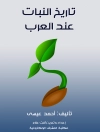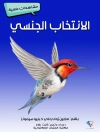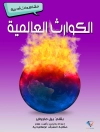Wie nehmen Kinder ihre Beteiligungsrechte in Umweltfragen wahr? Die vorliegende partizipative Studie gibt Einblicke in die Rechtsverständnisse von Kindern, die sich für die Umwelt engagieren. Verschiedene Vorstellungen von Kindern in Bezug auf ihr Recht auf eine gesunde Umwelt werden analysiert und Herausforderungen in der politischen Teilhabe in Umweltfragen von jungen Menschen aufgezeigt.
How do children perceive access and participation rights in environmental matters? The study presented in this book aims to broaden the discourse on political participation in environmental issues to include the perspectives of children and young people. As part of a participatory qualitative study, six interviews were conducted with young activists to explore their perspectives on their rights in environmental matters. The theoretical framework of the study is the concept of ‘Living Rights’. Different dimensions of children’s understanding of rights in relation to a healthy environment are analyzed, and challenges that children encounter when invoking their rights to access and participation are revealed.
Tabela de Conteúdo
Introduction
Literature Review
Children’s Rights related to a healthy environment
Intersectional discrimination and environmental harm
Conceptions of rights – as framework and living practice
A framework for children’s rights in environmental matters
Access and participation rights
Broadening the discourse: Rights as living rights
Environmental activism and children’s role: Reflections from literature and the public discourse
Children’s activism for the environment and their access to justice: Recent examples
The conceptions of environmental ethics and environmental activists: Findings in literature
Research and methodology
Context of research and field access
Limitations of research
Ethical aspects of involving children in research
Research questions
Research methods
Interview-design
Data-analysis
Results
Category 1: Conceptions of rights
Subcategory 1: Experience of the environment and environmental harm
Subcategory 2: Entitlement and generativity
Subcategory 3: Rights and formulations of justice as language for legitimation, as tool and as supportive framework
Category 2: Conceptions on activism as practice of participation and access rights
Subcategory 1: Activism as a result of a learning process, socialized through personal relationships and inspirations by others
Subcategory 2: Conceptions on approaches to activism
Subcategory 3: Activism as a personal benefit
Subcategory 4: Activism as a personal and societal challenge
Subcategory 5: A call to action for accountability, rule of law, participation and a change of consciousness
Summary of findings
Discussion
The experience of the environment: From an anthropocentric to a biocentric vision
Generativity and collectivity: Considering relations of injustice that reach beyond the present
The need for a more inclusive vision of law and jurisdiction
Conclusion
References
Abstract (Deutsch)
About the author
Sobre o autor
Born in Bielefeld (Germany) in 1993, Frederike Lindau has spent much of her life in nature and experienced the interconnection between natural spaces and its inhabitants early. During a voluntary service, she had the opportunity to support an educational project in Chiapas, Mexico. This inspired her to study educational sciences in Berlin, Germany, with a focus on children’s rights in emergency situations. After her Bachelor, she spent several years working in different projects promoting children’s rights.












